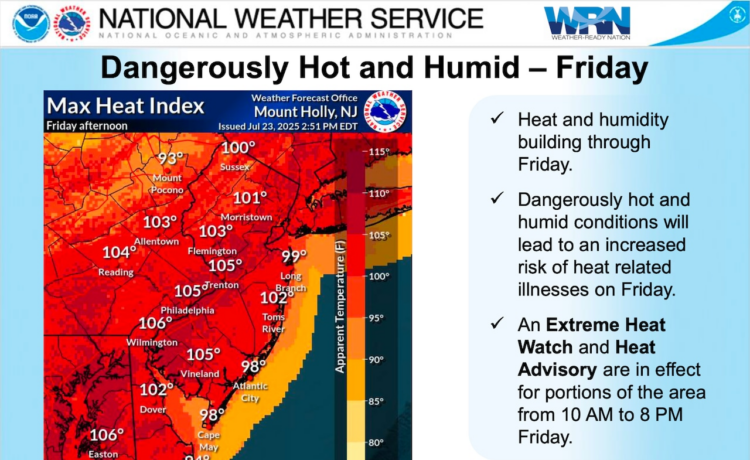By Khalil Savary
Throughout the nation, patients are experiencing worsening air quality because of wildfires, mold, excessive pollen blooms and higher concentrations of harmful emissions in vulnerable neighborhoods. These conditions have continued a troubling trend of loss of life and rising costs over the years.
We remember the wildfires in California and New Jersey. We remember the floods in Texas and Delaware. We remember those whose livelihoods have vanished as seasons shift and environments change. But is remembering enough? We must do more.
We should let these experiences shape our actions, not just our memories. As we enter yet another season of extremes – heat, hurricanes and fires – I urge all of us to establish community centers of care designed to support our citizens, distribute knowledge, provide essential supplies and offer aid during these crises. With the rising costs of medical care, prevention and preparation are now more critical than ever.
Federal support for local communities has declined, and if we don’t act, we will see medical facilities overwhelmed by preventable illnesses. In 2024, we treated an influx of patients suffering from heat stroke, dehydration and kidney damage, all linked to extreme heat exposure. Medications lost their effectiveness as temperatures soared and power outages disrupted refrigeration.
Investing public funds to create these community centers isn’t about comfort or luxury: It is a matter of public good and justice. Some argue personal climate control should be an individual responsibility, but this view is shortsighted. When everyone runs inefficient air conditioning in poorly insulated homes during heatwaves, we overload the power grid, increasing risk for the entire community. Cooling centers consolidate resources, reduce overall energy consumption and serve more people more effectively.
And if these reasons aren’t convincing enough, consider the economic cost: New Jersey consumers are facing steeply rising electric bills following the annual energy auction. Last year’s auction raised rates by 6%, causing monthly bills to jump nearly $200. This year, the increase is projected to reach at least 17%. For individuals with fixed incomes or competing necessities like food and medical expenses cooling off becomes a “luxury” they can’t afford, though the consequences of going without can be deadly.
By investing in resilience centers, we reduce not only medical emergencies and facility burdens but prevent setbacks such as learning loss in children and economic hardship in families. These centers can serve as hubs for preventive care, education and community building – essential tools in times of crisis. Successful grant- and municipality-funded centers demonstrate that these projects are possible.
We must identify and prioritize our most vulnerable – the elderly, the young and people with disabilities – and fulfill our moral duty to leave behind a legacy of care and foresight, not neglect.
These centers must be designed sustainably, with solar, wind, hydro power and microgrids, to remain functional when other systems fail. Preparing for disaster with thoughtful, targeted, and meaningful support isn’t a sign of weakness or wastefulness: It is the mark of wisdom, experience and responsibility.
Rather than reacting in fear after each catastrophe, let us act now – informed by past mistakes and successes – to build a safer, more resilient future.
Calling your elected representative in the state Assembly or Senate is the most effective way to influence policy. To find your state Assemblymember and Senator to voice your position, go to the New Jersey Legislature website’s Legislative Roster.
Khalil Savary, MD, a pediatric pulmonologist, is associate professor of Pediatrics at Rutgers New Jersey Medical School.
Local journalism needs your support. Subscribe at nj.com/supporter.
If you purchase a product or register for an account through a link on our site, we may receive compensation. By using this site, you consent to our User Agreement and agree that your clicks, interactions, and personal information may be collected, recorded, and/or stored by us and social media and other third-party partners in accordance with our Privacy Policy.


